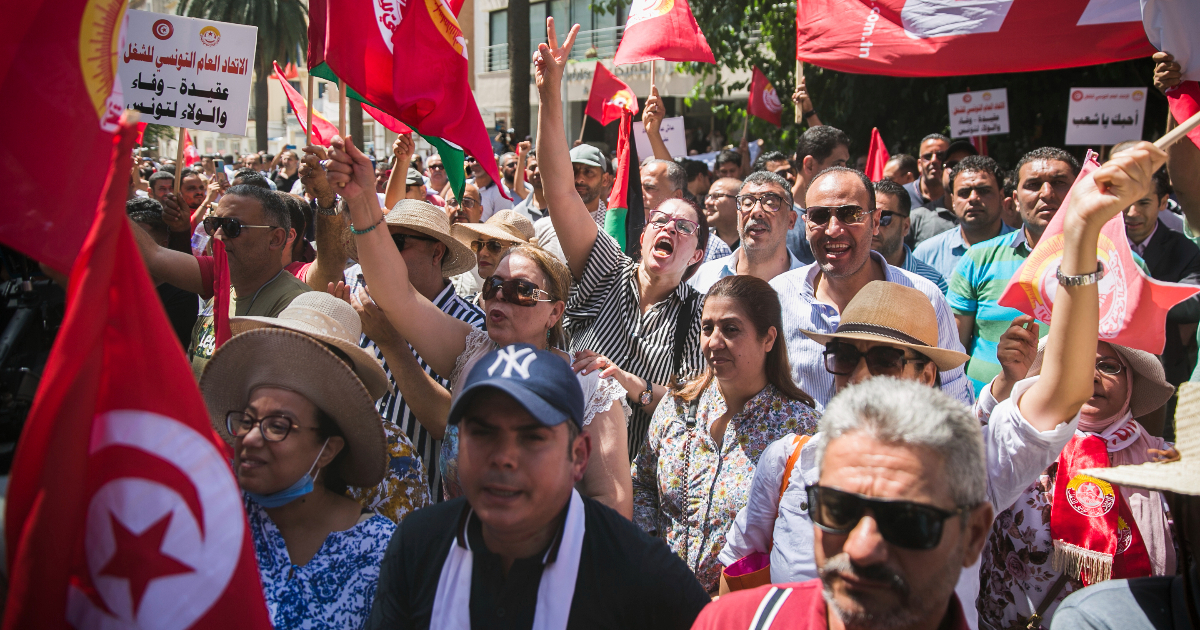A few dinars to buy jasmine essence enclosed in a glass bottle. That same jasmine that more than 10 years ago gave its name to one Revolution which has become a crucial page in the North African history of the new century. A fragrant flower that mixed with the acrid smell of the blood of the rioters who took to the streets to the cry of Freedom to depose the former dictator Ben Ali.
The Revolution saw many university and high school students as protagonists who, thanks to social networks, went online to gather in the squares of the center of Tunis between Avenue Bourguiba and Place de l’Indépendance. “Je proteste, donc j’existe!” (I protest, therefore I exist!). What was the ousting of dictator Ben Ali for? From country cradle of ‘Arab Spring’ to the many failed governments, not to mention the economic disaster and youth despair. Tunisian enthusiasm has faded after the president’s coup Saidwho now concentrates all power in his hands.
Especially on an economic level, the crisis continued to worsen. The shortage of basic necessities has multiplied and inflation has exceeded 10%. The latter combined with the conflict in Ukraine has increased the price of oil and cereals, hence the Tunisia he is very addicted. Added to all this is an unprecedented water crisis, especially drinking water has been cut off in popular tourist areas. Due to the serious crisis, private sector companies will now be called upon to replenish state coffers: the rates will be merge upwards with the disappearance of the 10% rate in favor of those at 15% and 35%. A tax on real estate wealth will also be created, the VAT for some liberal professions will be increased from 13 to 19%. The colossal state expenditure, however, will not decrease.
After reaching a preliminary agreement with the financial institution to guarantee a loan of 1.9 billion dollars, the government of Kaïs Saïed is banking heavily on these measures austerity which the IMF presented as a prerequisite for concluding the deal. All this while a protest movement organized by the union, known by the French acronym Ugtt (theGeneral Union of Tunisian Workers). On March 4, the UGTT mobilized the largest number of people against the Tunisian president Kaïs Saïed since he took office, with equally strong protests organized by a coalition of political parties, the National Salvation Front.
It is unlikely that Saied will be able to voluntarily resign in front of the fort opposition. This scenario is highly unlikely at this juncture. In other cases of authoritarian leaders who have resigned under popular pressure, such as Mubarak in Egypt or Abdelaziz Bouteflika in Algeria, important stakeholders, on whose support these dictators relied, they influenced their decisions. On the contrary Saied appeared more and more isolated and not at all influenced.
Assuming it does so coherent with his previous behavior, he will only continue to deflect blame, as stated by Karim Mezrandirector of the North Africa Initiative at the Atlantic Council.
Internationally, Tunisia has rarely appeared more isolated than today, with Western aid somewhat reduced, no sign of Gulf support and various squabbles with its main ally and neighbor Algeria. Meanwhile parts of the long-fractured opposition are starting to talk about ways to set aside their old enmities to coordinate action against Saied, with the latter using military court authorities to try political cases after taking power in 2021.
In a Maghreb increasingly compromised with disastrous effects and consequences especially for Libya and Tunisia, there are fears of major food crises and greater escapes to Italy, the gateway to the European Union. Just Italy which according to the Tunisian Economic Observer in the meantime has become the first trading partner of Tunisia in terms of volume in 2022. The Meloni government, which fears the bankruptcy of the Tunisian state, could provide a financing from 110 million euros to Tunisian small and medium-sized enterprises through the Italian Agency for Development Cooperation. From the jasmine revolution to a revolt for bread the step is now very short!
